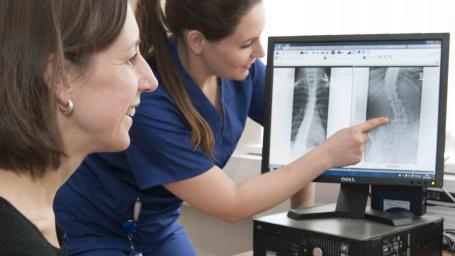The Emergency Department Clinical Research Team deliver national and international multi-centre studies in Emergency Medicine and trauma related specialities, working to advance the care that we give to our patients.
The team also work closely with colleagues across the Trust and beyond to develop new and innovative research ideas that test new treatments especially in the fields of major trauma and emergency medicine.
Please speak to the person treating you to find out if there is a research study that may be able to help you.
Current Studies:
Dexacell
Dexacell s the addition of oral dexamethasone to usual care in patients who present to urgent and emergency care with cellulitis effective and cost-effective in terms of reducing pain, improving quality of life, and reducing further antibiotic usage and healthcare use?
Why is this an important question to answer?
Cellulitis is a common bacterial skin infection and has a major impact on patients and healthcare utilisation. Hospital treatment costs in England and Wales alone are estimated at £220 million per year (1). When patients with cellulitis attend hospital they are usually treated with antibiotics and painkillers (2). However, even with this treatment around 1 in 5 patients will later seek further treatment due to ongoing symptoms – most often this is due to pain. This can lead to additional doctors appointments, A&E visits and additional antibiotics (3). It is therefore important to look for other ways to reduce early symptoms in patients with cellulitis, particularly pain.
There is a type of anti-inflammatory medicine called ‘corticosteroids’ that are often given to reduce inflammation and pain, improving short-term symptoms in patients with other types of infection and many other conditions. They are not currently used for the treatment of cellulitis but small research studies suggest that the addition of oral corticosteroids to antibiotics reduces pain and other symptoms, without adverse effects (4-6). Because of this, some guideline bodies recommend corticosteroids in patients with cellulitis, while others suggest further trial data is needed. A definitive clinical trial is needed to establish the costs and benefits of giving corticosteroids to patients with cellulitis by assessing outcomes that matter to patients and the health service.
We are therefore running this large trial across multiple hospitals across England and Wales. We are aiming to recruit 450 patients to participate in the trial so that we can find out whether giving people with cellulitis a ‘corticosteroid’ called dexamethasone can:
- Reduce pain,
- Improve quality of life,
- Reduce additional healthcare appointments,
- Reduce the need for extra antibiotics and pain relief,
- Reduce costs.
PI: Dr Edd Carlton
Planned end date: 31st January 2026
Local ref: 5411
SHED – Subarachnoid Haemorrhage in the Emergency Department
Our aim is to understand how best to investigate acute severe headaches, which are suggestive of a condition called subarachnoid haemorrhage (SAH). SAH is a potentially severe cause of headache in the UK and requires urgent identification and treatment. It is defined as the presence of blood within one of the layers of the brain. At its most serious, it can cause death and severe disability.
We want to understand the accuracy of CT brain scanning in the Emergency Department (ED) and how this accuracy changes with time.
We will collect data on patients presenting to the Emergency department that have headaches reaching peak intensity within one hour. These are the classic headache patterns that raise concern with clinicians about the possibility of SAH. We will use this data to try and validate recently proposed clinical rules, and CT brain strategies, which suggest they can exclude the possibility of SAH with a high degree of precision.
With this information, we will be able to inform clinicians how accurate CT brain scans are safely excluding SAH. Further to this, we will highlight how this accuracy changes depending on the timing of the scan, using hourly intervals from onset of the headache. We will also evaluate the accuracy of clinical decision rules (without any brain scans) to exclude the condition of SAH.
Project Details
Principal Investigator: TBC
Planned End Date: TBC
Local Ref: 4761
Take Part in Research

Become one of the thousands of people taking part in research every day within the NHS.
About Research & Development

Find out more about our research and how we're working to improve patient care.
Contact Research
Research & Development
North Bristol NHS Trust
Level 3, Learning & Research building
Southmead Hospital
Westbury-on-Trym
Bristol, BS10 5NB
Telephone: 0117 4149330
Email: research@nbt.nhs.uk

